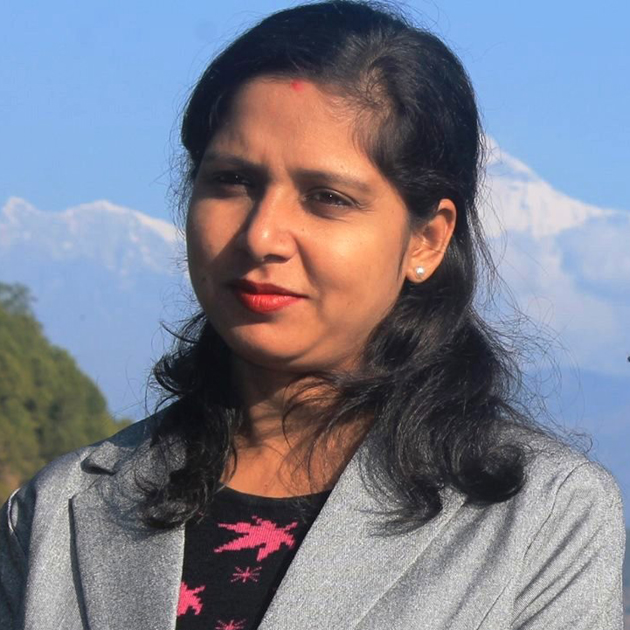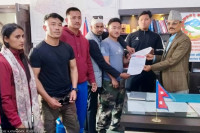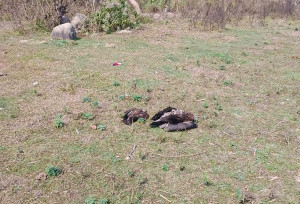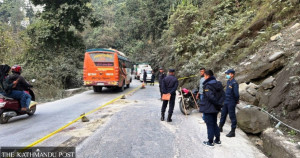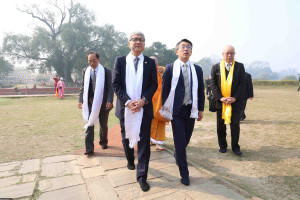Lumbini Province
Healthy youth presence perks up Lumbini Provincial Assembly
As many as 26 members in the 87-strong assembly are under 40 years of age.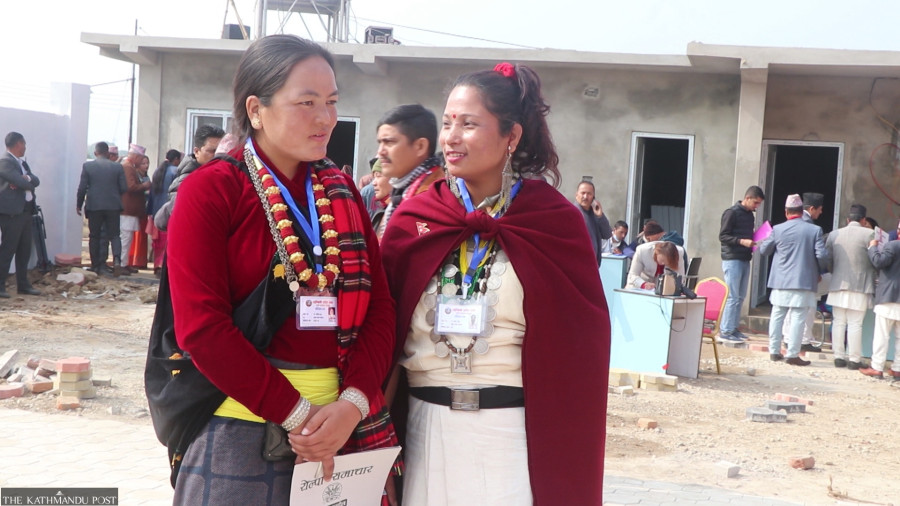
Amrita Anmol
Anurag Khadka returned to Nepal from the United Kingdom after completing his Bachelor’s in Business Administration degree last year. He was 27.
Unlike many of his contemporaries who stayed back in the UK or moved to another country, Khadka decided to return home in Dang with a single purpose. He wanted to enter politics. Khadka became a Mahasamiti member of the Nepali Congress upon his return and contested the provincial election held on November 20 last year.
Khadka was elected to the Lumbini province assembly from Dang Constituency No 1 (b) at the age of 28, becoming the youngest member in the 87-strong assembly.
The young provincial lawmaker wants to use his education and experience to focus on health, education, commercialisation of agriculture and infrastructure development.
“When I went canvassing for votes, most people complained that people’s representatives forget about them after winning polls,” Khadka said. “So I’ve made it a point to meet people on a regular basis and listen to their grievances. I will take their issues to the government and work towards finding solutions.”
Khadka is the son of the late Congress leader Khum Bahadur Khadka.
Twenty-nine-year-old Ambika Kafle was elected to the provincial assembly under the proportional representation system. A permanent resident of Nepalgunj Sub-metropolis-13 in Banke district, she was elected a central member of Janata Samajbadi Party, its Lumbini provincial treasurer and Banke chief of the inter-party women’s network before becoming a provincial assembly member.
Kafle says work in the social service sector gave her an insight into the importance of youth in politics. “I used to work with a cooperative. Then I joined Manabata Nepal, a social organisation that provides humanitarian assistance to the poor and helpless people,” said Kafle. “During my affiliation with the organisation, I realised that a lot of work remains to be done in the field of gender equality and youth empowerment. I joined politics with the hope of making significant changes in the system while being a part of it.”
Lumbini Province is seeing a rise in the number of interested youths stepping into politics which has so far been the playground of the old gatekeepers. There are as many as 26 members below 40 years in the Lumbini assembly currently. Only nine youths from this age group were in the last provincial assembly. Congress leader Basiuddan Khan, 39, and Loktantrik Samajbadi Party’s Santosh Kumar Pandey, 39, have been re-elected to the assembly. Both of them served as ministers.
The youths’ involvement in politics in increasing numbers comes as a breath of fresh air, says Dil Sahani, a writer and political analyst. He, however, cautions the young leaders about the challenges they will face in their journey. He suggests that young leaders should rise above the party limits and execute result-oriented work that stands to benefit society.
“The government, provincial assembly and the parties are largely dominated by the senior people. It is not easy for the youths to work under their leadership,” said Sahani. “It will be a challenge to find common ground with established politicians but the youth representatives should find ways to work together with the older politicians to uplift the situation of the common people.”
The elected youths are committed to working to address public aspirations, says 30-year-old Chandrakesh Gupta. He is a Janamat Party minister in Lumbini Province.
Gupta, elected from Rupandehi Constituency No 5 (b), has been leading the Ministry of Social Development. “I strongly lobbied for the social development ministry to combat illiteracy, inequality, social evils, and class and caste discrimination prevalent in the Tarai region,” he said. “My core area of focus is transformation through social development.”
Gupta says he has prioritised solving the fertiliser problem faced by the farmers; reducing the mortality rate in pregnant women due to the lack of specialist health services; and ensuring no child in rural areas drops out of school.
“Development of society is directly related to the development experienced by the people at the grassroots level,” he said. “I will focus on development where it matters the most.”
The young members of the Lumbini provincial assembly are committed to transforming the economic, social, cultural and political realities of the province. All of them have prioritised good governance, employment and practical education.
Raj Kumar Chaudhary, aged 31, was elected from Bardiya 1 (b). He is the central member of Nagarik Unmukti Party and the party’s chief whip in the provincial assembly. Justice and identity are his main agendas.
“Tharus are indigenous to Madhesh. But they are deprived of their rights and identity. They are landless despite living here for generations. Their identity and justice are my main agendas,” he said. “Youth unemployment gives rise to violence and crime. I will try my best to create jobs for them.”
Nori Kumari Chaudhary, 32, and Dharma Bahadur Chaudhary, 36, are two other lawmakers from the Nagarik Unmukti Party.
Some of those 26 assembly members below 40 years have worked with the sister organisations of their parties while a few others, mainly those elected under the proportional representation system, were actively involved in various social campaigns.
Sayara Bano, 34, is the only woman representing the Muslim community in the Lumbini assembly. She was elected a CPN-UML member under the proportional representation system. Bano, who holds a Master’s in Sociology, was actively involved in social campaigns for the rights of Madheshis as well as Muslim communities with special focus on women.
“I will raise my voice for the rights, education and overall change of the situation of those communities,” Sayara said. “Ending gender violence and bringing Madrassas into the mainstream of education is also my priority.”
The increasing number of youths in the provincial assembly is taken as a positive sign in Nepali politics.
“Youths have the power to change the country’s face through constructive works. Just being young does not mean you become a changemaker though,” said Lila Giri, the chief minister of Lumbini Province. “Their deeds should justify their energy and enthusiasm.”
The participation of youth in politics has added vibrancy to the provincial assembly, according to Speaker Tularam Gharti Magar. “Their participation and concerns seen in the initial meetings of the assembly show they are assertive and result-oriented,” said Gharti Magar. “I hope to see their work next.”




 8.43°C Kathmandu
8.43°C Kathmandu